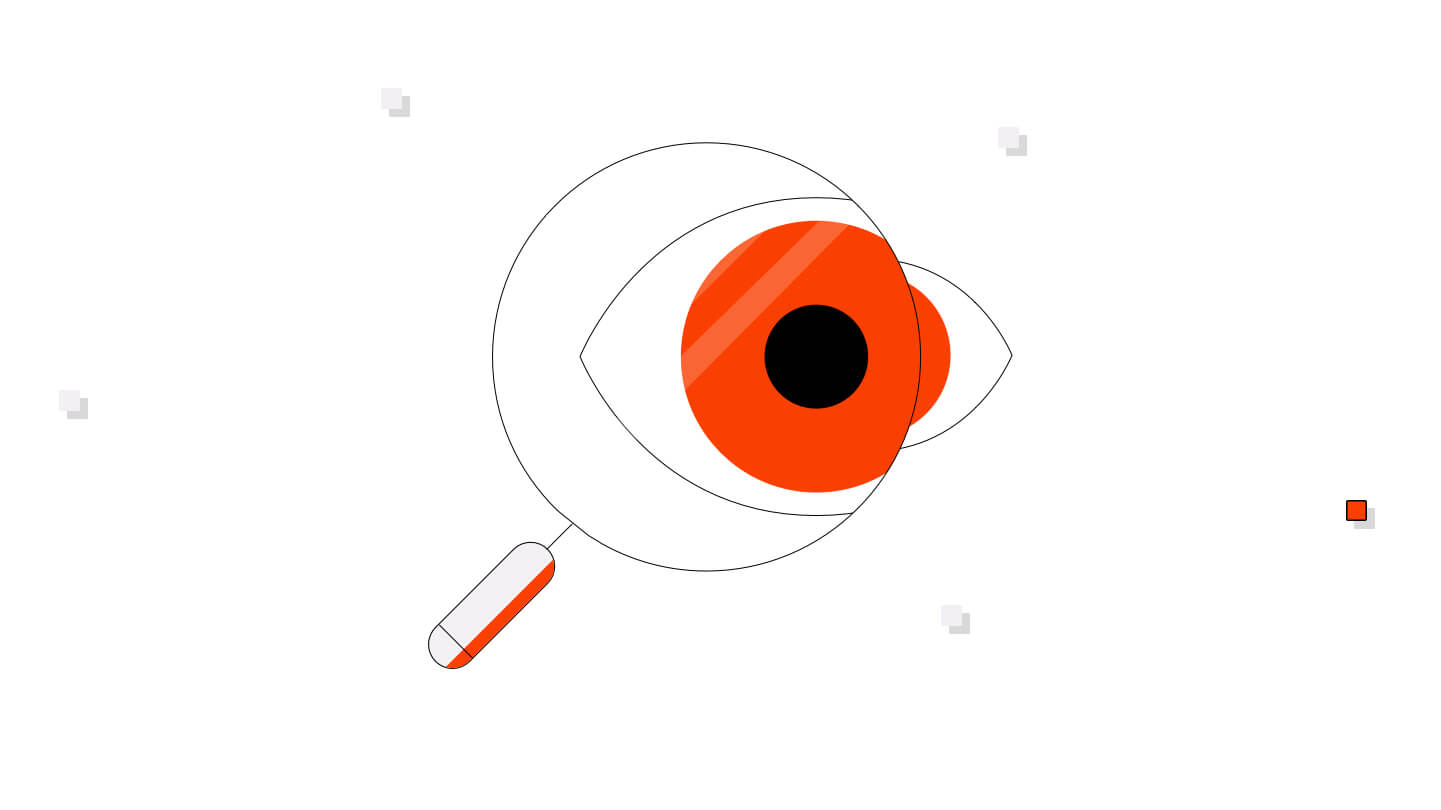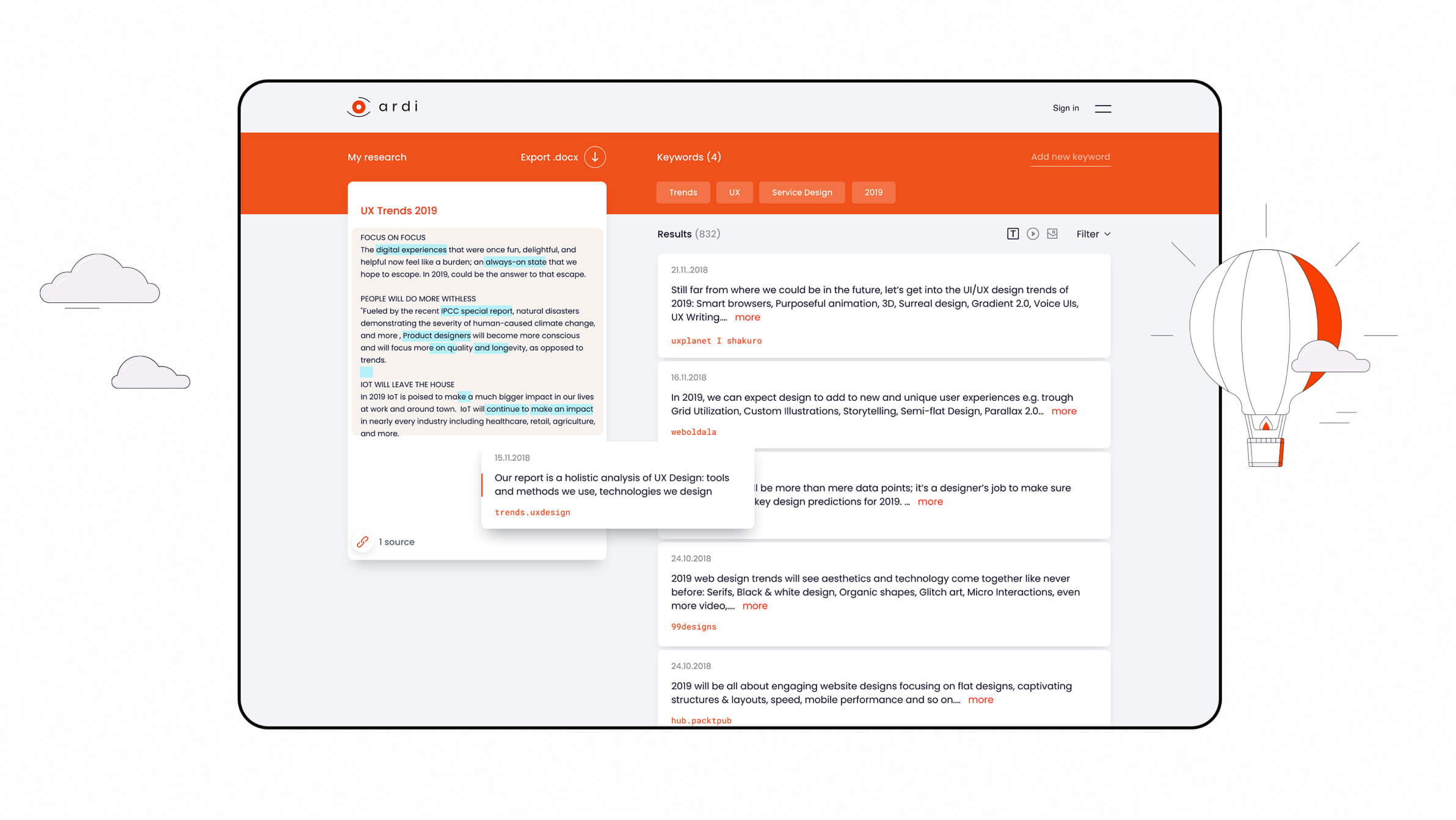Ardi: AI for research

Awards
- Second place, ‘AI for Businesses’, Microsoft AI Award 2019 – Agency Edition
Problem
When you have a question, search engines have your answers—12,450,000,000 of them in 0.49 seconds‼️ Is the one your want there? Can you dig it out in time? 🔍
Status quo
We all know the pain when our doubt and curiosity cannot be resolved. 🤔 We look here and there desperately, but are left in sole uncertainty. Sometimes, we might have a slight hint after swimming for hours in portfolio of text—if we’re lucky—but that could well only lead us to further open waters… 🏊🏼♂️
Concept
Being a strategic experience designer, my role was to guarantee innovative concepts from beginning can be translated into enriching experience through the product in the end. Together with data specialists, my team and I imagine Ardi as an artificial intelligence–powered research tool which facilitates research practices. It uses Microsoft Azure Cognitive Services to detect, collect and cluster search results into 📚 categories and offer your succinct abstracts. These summaries can be dragged and dropped to your 📜 research document, which it further analyses. Ardi then detects directions of related subjects and return you with content-sensitive suggestions through its algorithms. In short: a research tool that concurrently offers analysis!

We worked out the architecture and trialed some simulation settings. Instead of linear look-ups, Ardi can assist in multi-directional exploration, filters out repetitive noise, and skims down results into their essence.💡
Result
Research workflow is enhanced by reduced loops. Information processing and insight discovery are sped up. Not only Ardi helps reduce the cost of research process, but also unlocks the doors to verbalised knowledge for progressive communication and creation. 😊
Courtesy: denkwerk, visual content.